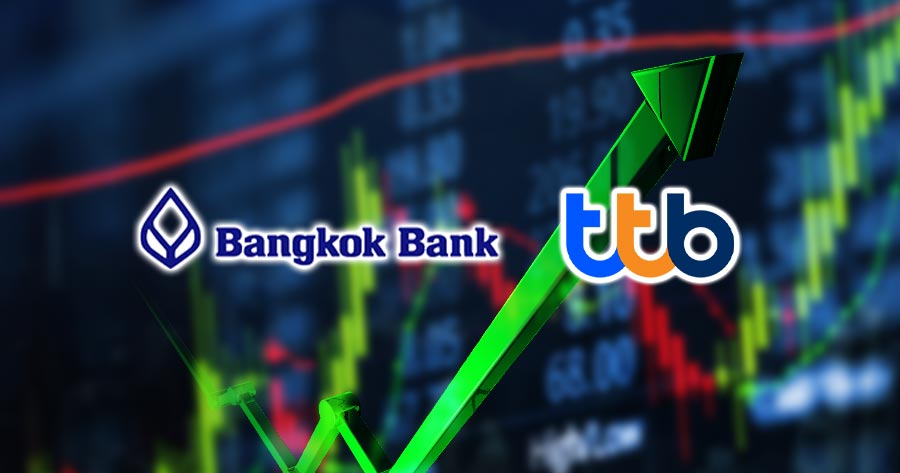FSS International Investment Advisory (FSSIA) expects Bangkok Bank Public Company Limited (SET: BBL) and TMBThanachart Bank Public Company Limited (SET: TTB) to come out on top among Thai commercial banks amid a rise in interest rates, but clouded by concerns over asset quality.
The investment advisory stated that the interest rate uptrend is nearly ending with the policy rate possibly climbing up another 25bp to 2.25% during 4Q23. Thus, the banking sector’s earnings should continue to benefit from the hike throughout 1H24, especially the big banks. Key drivers are their favourable lending and funding structures and role as net lenders in money markets.
Net interest income (NII) and net interest margin (NIM) are also the two main factors that the market has been focusing on. FSSIA noted that ample liquidity since the Covid pandemic should benefit both NII and NIM to grow higher.
However, FSSIA warned that the market should not overlook the potential downside risks from asset quality as NPL ratio is expected to rise further in 2H23 and credit costs should remain high, especially big banks. Still, these factors should be manageable under the banks’ proactive asset quality management.
As for 2Q23, FSSIA see no cause for concern and expect the NPL/TL ratio to remain stable at around 3.70% with credit cost slightly lower by 6bp compared to 148bp in 1Q23, and LLR/NPL at 182% (180% in 1Q23).
With the initiation coverage of Thailand’s banking sector, FSSIA gave a Neutral weight call, expecting the aggregate 2023 net profit for the seven banks under its coverage (BBL, KBANK, KTB, SCB, TTB, KKP and TISCO) to increase by 16.2% YoY.
The international advisory expected BBL and TTB to continue delivering strong earnings growth when the interest rate hike story fades. BBL has solid growth potential from international banking business, confirmed by its earnings before taxes and average total asset growth over the past 10 years, which showed higher growth rates than domestic banking. Meanwhile, TTB has a healthy improvement in its NIM that comes from recycling liquidity from low-yield loans into new loans in high-yield segments for a better loan mix, and its potential to boost fee income from digital channels.





